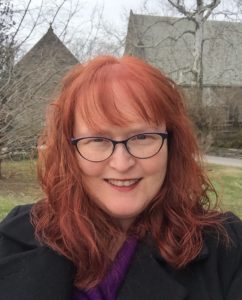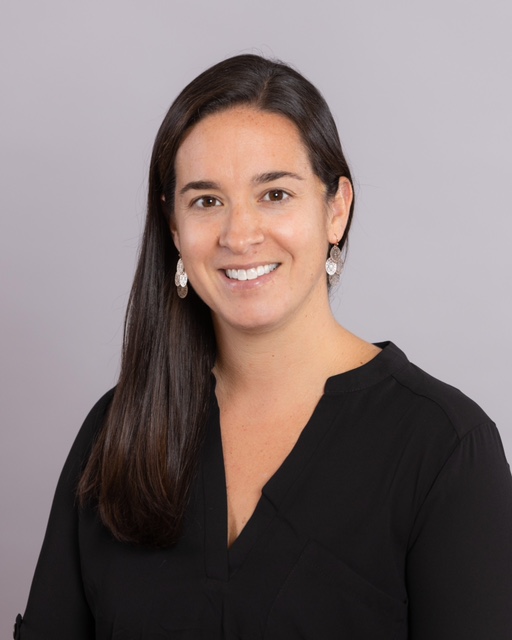 Elizabeth Venart is the Director of The Resiliency Center and a Licensed Professional Counselor in the State of Pennsylvania.
Elizabeth Venart is the Director of The Resiliency Center and a Licensed Professional Counselor in the State of Pennsylvania.
She is also a National Certified Counselor through the National Board of Certified Counselors.
Elizabeth has 25 years of experience in providing counseling, clinical supervision, and training services. For nearly ten years, she worked in non-profit crime victim centers providing individual and group counseling—as well as crisis intervention and critical incident stress management services—to women, children, and men impacted by traumatic grief and crimes of violence. Elizabeth also worked as a school counselor for seven years—at an independent school for boys and with an alternative school for children with emotional, behavioral, and learning challenges.

Elizabeth Venart’s counseling office
Individual, Couples, and Group Counseling
Elizabeth’s counseling specialties include trauma and anxiety, job burn-out and career transition, and working with people who are highly sensitive, empathic, creative, and intuitive. She also supports couples to identify current patterns and create changes that allow for greater compassion and intimacy.
A Person-Centered Approach
The foundation of Elizabeth’s work with individuals, couples, and groups is relational. Before any other work can occur in counseling, an atmosphere of respect and safety must be developed within the relationship.
Trusting in the power of individuals to find their own solutions to life’s difficulties, she uses a person-centered therapy approach in her work with clients—working as a facilitator and coach to help people discover and access their inner resources. Bringing a trauma-informed perspective to her work, Elizabeth recognizes that unresolved grief and hurt are often at the root of individuals feeling stressed, “stuck,” or unhappy.
Strategies and Solutions for Healing
Elizabeth recognizes that people come to therapy looking for information and resources to help them, especially when struggling to create new patterns in their relationships or working to overcome experiences of grief and trauma.
Cognitive Therapy
She uses principles from mindfulness-based cognitive therapy to help clients learn to identify how their thoughts can contribute to or help lessen their experiences of pain—and to learn various methods for slowing down their mind so that they can more fully experience the present moment.
EMDR
EMDR (Eye Movement Desensitization and Reprocessing) is a comprehensive, trauma-informed therapy that integrates mindfulness, cognitive therapy, and insights from neuroscience to get to the root of the symptoms, triggers, and obstacles that bring people to therapy.
Elizabeth is a Certified EMDR Therapist and an EMDRIA-Approved Consultant. She offers individual and group consultation to therapists seeking to strengthen their EMDR Therapy skills and gain certification. She has undergone several advanced training programs on the use of EMDR with children, severe trauma, and dissociation. She is experienced in using EMDR to facilitate clients’ successful healing from trauma, grief and anxiety.
Internal Family Systems
Internal Family Systems (IFS) is a therapy approach that recognizes and respects the complexity of each person’s inner world. Inner conflict between parts (often recognized as having competing beliefs and desires) is often at the root of anxiety, depression, indecisiveness, and dissatisfaction. By listening deeply to all parts of self, we can have greater ease in our lives, greater compassion for ourselves, and less distress and reactivity.
One example of an inner conflict that might arise among parts could be as follows: (1) Part of you looks outside on a sunny day and really wants to go on hike, (2) Part of you is determined to clean the house because company is coming tomorrow, (3) Part of you feels pulled to visit a sick friend, and (4) Part of you feels overwhelmed by the choices and just wants to stay in bed. When we begin to understand our inner conflicts through the lens of IFS and parts, we develop an ability to see our struggles more clearly and with greater compassion. In couples therapy, this lens leads to deeper understanding about habitual reactions and patterns and, ultimately, greater intimacy and connection.
Highly Sensitive Persons
Elizabeth provides a safe, emotionally attuned healing environment in which Highly Sensitive persons (HSPs) can heal emotional wounds and move towards greater self-understanding and acceptance. Our work focuses on helping HSPs validate and appreciate their strengths and learn effective coping strategies for living in a world where the majority of people are not highly sensitive.
Group Counseling
In her groups, Elizabeth provides opportunities for individuals to connect with others, tap into their strengths, participate in activities and discussions designed to promote greater self-awareness, and receive support in creating positive changes in their lives.
Laughter Yoga
Elizabeth Venart became Certified as a Laughter Yoga Instructor in 2011. Laughter yoga is a fun and uplifting form of exercise that combines playful laughter exercises with deep yoga breathing. The proven health benefits of laughter include reducing stress, improving mood, increasing cardiovascular health, lowering blood pressure, and generally helping people feel more relaxed and comfortable in their bodies and in the world. Elizabeth leads laughter yoga classes at The Resiliency Center, works individually with people teaching them laughter yoga, and integrates laughter yoga into her professional trainings and Resiliency Retreats.
Clinical Supervision and Training Programs for Health Care Professionals
Elizabeth provides clinical supervision and training programs to individuals, groups, and organizations and is available to provide LPC supervision to counselors seeking licensure. She has over ten years of experience supervising counselors across a variety of settings.
Clinical Supervision
Her approach to LPC and clinical supervision is rooted in a humanistic, relational framework. She supports counselors in deepening their understanding of clients’ challenges and goals, identifying any obstacles to empathy and mindfulness, and providing concrete strategies to promote change. She helps counselors cultivate a trauma-informed perspective and invites them to listen for stories of resiliency. Elizabeth also provides career guidance to counselors as well as vicarious trauma consultations to both individuals and organizations.
Training Programs for Professional Helpers
Elizabeth has been providing training programs to professional helpers since 1996. She has presented at the local, regional, and national levels, and her strength lies in making the material come to life for participants through reflective exercises, dialogue, and opportunities for creative expression and the development of personal insights.Her training specialties include trauma, vicarious trauma, counselor wellness, team-building in organizations, and creativity development.
From 2003 through 2007, Elizabeth served on the American Counseling Association’s Task Force on Impaired Counselors. Part of her work on the task force included the development of effective intervention programs to facilitate counselor wellness and serving as a co-editor for a special journal issue on counselor wellness through the Journal of the Counseling Association for Humanistic Education and Development.
Elizabeth was an adjunct instructor with the Behavioral Health Counseling Sciences Program of Drexel University from 2003 -2008. She taught Group Counseling I and II, Theory and Practice of Counseling, Assessment and Treatment Planning, and Cognitive Therapy II.
 Lindsay Roznowski is a Licensed Professional Counselor providing individual and family therapy to children, adolescents, and adults.
Lindsay Roznowski is a Licensed Professional Counselor providing individual and family therapy to children, adolescents, and adults.
 Carolyn is a Licensed Professional Counselor.
Carolyn is a Licensed Professional Counselor. Elizabeth Campbell
Elizabeth Campbell

 Kathleen Krol is a Licensed Clinical Social Worker, Registered Play Therapist-Supervisor, and Certified EMDR Therapist.
Kathleen Krol is a Licensed Clinical Social Worker, Registered Play Therapist-Supervisor, and Certified EMDR Therapist.
 Elizabeth Venart
Elizabeth Venart